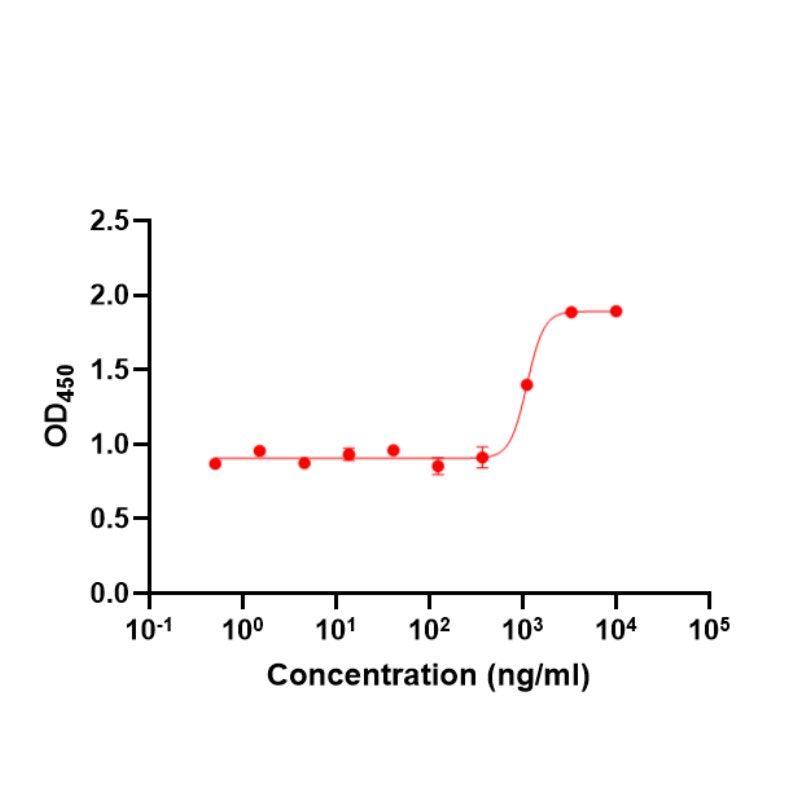Description
Fibronectin (FN) is an extracellular glycoprotein that exists in soluble form in body fluids or in insoluble form in the extracellular matrix. As one of the main cell adhesion molecules, FN plays a key role in many important physiological processes, such as embryogenesis, wound healing, hemostasis and thrombosis. Changes in fibronectin expression, degradation and combination are closely related to a large number of pathological occurrences, including cancer and fibrosis.
Applications of fibronectin (FN):
1) As a cell culture matrix; its function is to promote cell growth, increase cell adhesion rate, enhance cell metabolism level, shorten cell growth time; increase cell fusion rate in hybridoma technology, etc.
2) Disease diagnosis and treatment; its function is wound repair and healing, cancer diagnosis and treatment, treatment of vascular system and cardiovascular and cerebrovascular diseases, etc.
This product is a recombinant human fibronectin derived from rice endosperm cells, existing in monomeric form, and can be used as a cell culture matrix to replace Matrigel, rat tail collagen, blood-derived fibronectin, etc., to increase cell adhesion rate, enhance cell metabolism level, and shorten cell growth cycle. It can also be added directly to the culture medium to replace or reduce the amount of serum used, promote cell adhesion, migration, mobile growth, and maintain cell status.
This product is a freeze-dried powder, which is of cell culture grade and has the characteristics of small batch-to-batch differences and no potential risk of viral infection.
Product Properties
|
Synonyms |
Fibronectin, FN1, CIG, ED-B, FINC, FN, FNZ, GFND, GFND2, LETS, MSF |
|
Species |
Human, Access: P02751 |
|
Tag |
N-His |
|
Source |
CHO Cells |
|
Molecular Weight |
The protein has a predicted MW of 97 kDa. And it migrates as 100-130 kDa under reducing (R) condition (SDS-PAGE) due to glycosylation. |
|
Physical Appearance |
Sterile Filtered White lyophilized (freeze-dried) powder. |
|
Purity |
> 90% by SDS-PAGE |
|
Biological Activity |
The ED50as determined by a celI adhesion assay using B16-F1 mouse melanoma cells is less than 1.1 μg/mL,corresponding to a specific activity of > 1.17 X 10^7 IU/mg.Fully biologically active when compared to standard. |
|
Endotoxin |
< 0.5 EU/μg |
Shipping and Storage
This product should be stored at -25~-15℃ for 1 year.
Features
High Purity: >90% as confirmed by SDS-PAGE, ensuring reliable performance in cell culture and transduction assays.
Freeze-Dried Powder: Convenient storage and long shelf life, easy to reconstitute when needed.
Low Endotoxin: Ultra-low endotoxin levels(<0.5 EU/μg), safe for direct use in sensitive cell cultures, including primary T cells.
Application
Viral transduction, cell matrix.
Figures
1. High Purity

Figure 1. Human Fibronectin on SDS-PAGE under reduced condition. The purity is greater than 90%.
2. ED50 and Specific Activity

Figure 2. The ED50 as determined by a celI proliferation assay using B16-F1 mouse melanoma cells is less than 1.1 μg/mL, corresponding to a specific activity of > 1.17 X 107 IU/mg. Fully biologically active when compared to standard.
3. Superior Performance: Increased cell yield and enhanced viability

Figure 3. Enhanced Expansion of Primary Human T Cells Using Yeasen Recombinant Human Fibronectin.
Primary human T cells were cultured on surfaces coated with Yeasen rhFN or a competitor product. Yeasen rhFN supported superior T-cell activation and proliferation, demonstrating higher cell yield and viability compared to supplier C*.
Documents:
Safety Data Sheet
Manuals
92619_Manual_Ver.EN20251024.pdf
Related Blog
Unlocking the Power of Recombinant Human Fibronectin in CAR-T Cell Manufacturing
Payment & Security
Your payment information is processed securely. We do not store credit card details nor have access to your credit card information.
Inquiry
You may also like
FAQ
The product is for research purposes only and is not intended for therapeutic or diagnostic use in humans or animals. Products and content are protected by patents, trademarks, and copyrights owned by Yeasen Biotechnology. Trademark symbols indicate the country of origin, not necessarily registration in all regions.
Certain applications may require additional third-party intellectual property rights.
Yeasen is dedicated to ethical science, believing our research should address critical questions while ensuring safety and ethical standards.

